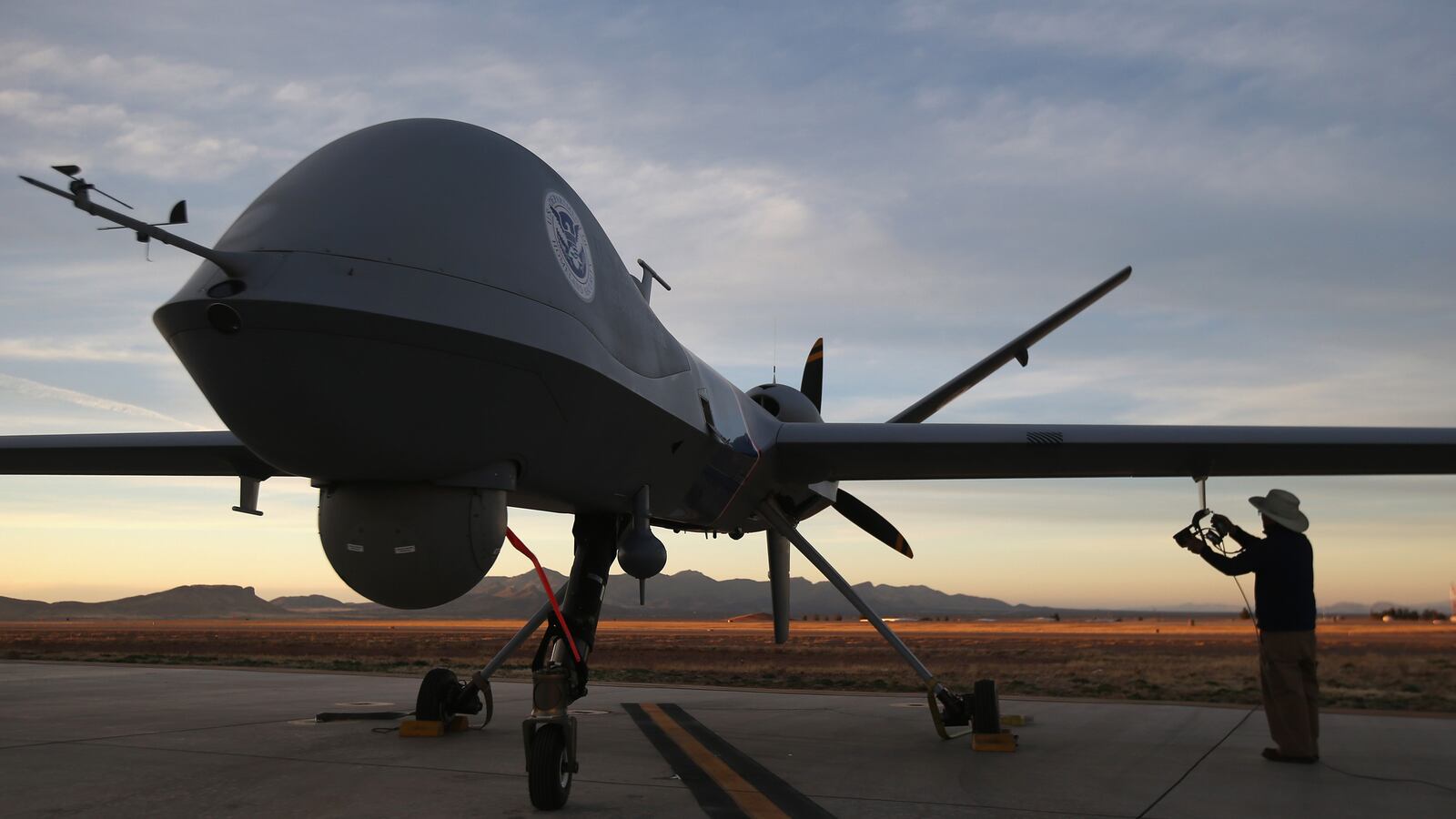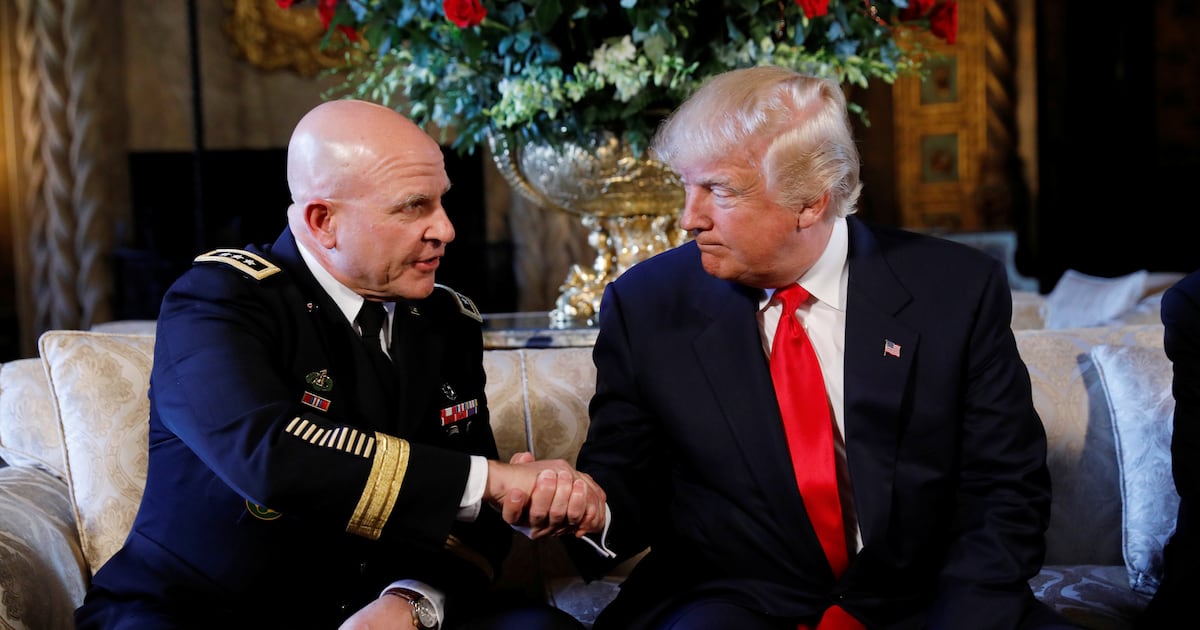Congress started it all this year when it voted to allow drones to fly in the U.S. as soon as 2015. Now it’s fighting against its self-imposed deadline to pass legislation that limits the scope of the new technology.

At a hearing Friday, the House Judiciary Committee’s Subcommittee on Crime, Terrorism, Homeland Security, and Investigations discussed what measures should be included in a federal bill that would protect Fourth Amendment rights without limiting the potential benefits of drones.
“The expectation of privacy down the road is going to not be expanded but made smaller,” said Rep. Ted Poe (R-TX). “I think that’s what members of the Supreme Court, to me, are saying, which concerns me. So Congress needs to set a standard.”
The meeting was the second on the topic of domestic drones this year and reflects a mad dash by both state and federal lawmakers to place checks on the technology before it’s readily available.
In February, Congress voted to make the Federal Aviation Administration let drones fly in U.S. airspace by 2015. In response, four states have already passed legislation limiting the use of drones or unmanned aerial systems within their borders. According to the American Civil Liberties Union, 32 states in total have active legislation that would limit the not-yet-legal technology. Yet no federal bill has passed.
During Friday’s hearing, Congress members, along with a panel of experts, agreed that a law should limit police officers from blanket surveillance and make them get a warrant for searches in most situations. However, some were cautious of overly broad legislation.
Rep. Bob Goodlatte (R-VA), the first to direct a question to the floor, used the Boston Marathon bombing as an example of a situation where an officer could be flying a drone for one specific purpose, but unintentionally gather evidence that may help in another case.
“If somehow the Tsarnaev brothers were detected by a drone, would that be admissible in court?” he asked.
Gregory McNeal, a law professor at Pepperdine University, and John Villasenor, a senior fellow at the Brookings Institution, both said yes.
“Some privacy advocates want a ban on this secondary evidence in all circumstances, and I understand the impulses. It creates this circumstance where we might have this general surveillance that we are all concerned with,” said McNeal. “But I think there has to be some circumstances where we can allow that.”
Villasenor said the same situation could happen in many different cases. “If a government aircraft is monitoring a traffic incident and on the corner of the sidewalk an assault takes place and it’s the only video evidence, I think it would defy conscience to say, ‘We know who the perpetrator is but we can’t use the evidence,’” he said.
The representative for the ACLU on the panel, Christopher Calabrase, said allowing unintended surveillance material to be admissible would be a slippery slope.
“We’d assume that surveillance by drone would be largely directed and targeted. We don’t want people to be recorded all the time, with drones constantly monitoring them and for people to be worried that what they are doing is going to end up on YouTube,” Calabrase said.
He instead insisted drone use was better equipped for situations where a breach of the Fourth Amendment would be rare.
“When we think about how we would want to use a drone, it’s clear that most of the uses—finding a missing person, fighting a forest fire—are not issues that would implicate the Fourth Amendment,” he said.
But Rep. Trent Franks (R-AZ) argued that creating a law with such a distinction may be hard.
“It seems to be a difficult challenge to parse the use of UASs for law-enforcement agencies versus non-law-enforcement agencies,” Franks said.
The hearing culminated in a discussion about whether a federal bill should specifically address only drones or include all methods of technology-based surveillance.
It was argued that facial-recognition cameras and helicopters with heat-imaging capabilities were just as threatening as a drone when it comes to a person’s security when used without a warrant or probable cause.
Rep. Karen Bass (D-CA) added that commercial use of drones could also bring about privacy concerns.
“In my area, there is some concern over the paparazzi that have gone through some extreme lengths to invade people’s privacy,” she noted.
Many agreed that although a drone can be more frightening than a typical surveillance camera because it can spy on a person from the air, its usage is not much different from that of other observation technology—a conclusion they will consider for the bill.
“This isn’t a drone-specific thing; it’s an enhancement of technology,” said panelist McNeal. “Congress needs to look at surveillance and define it and then create some lines.”






